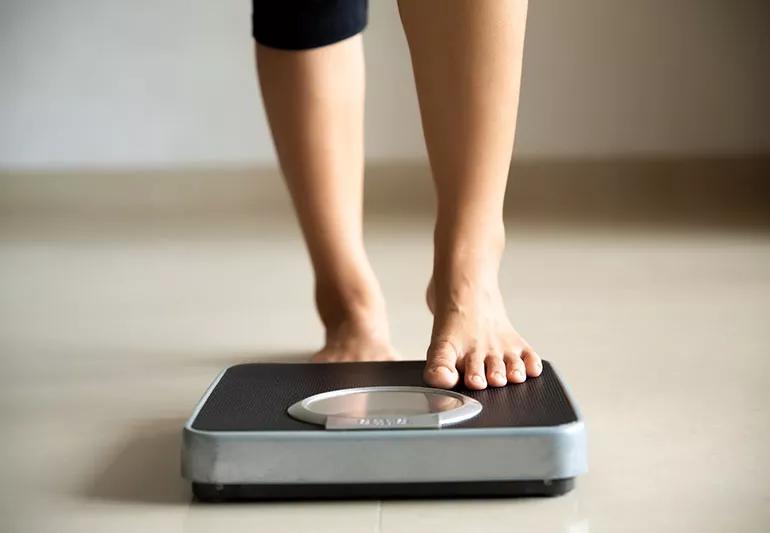Forget fads and get advice from a real nutrition expert

From low-carb to low-cal, juice cleanses to carnivore diets, you can’t avoid the latest food fads. And everyone from your mother-in-law to your dental hygienist seems to have diet advice to share. Although they (probably) mean well, you might want to take their tips with a grain — or heaping tablespoon — of salt.
Advertisement
Cleveland Clinic is a non-profit academic medical center. Advertising on our site helps support our mission. We do not endorse non-Cleveland Clinic products or services. Policy
“There’s so much misinformation and so many mixed messages out there,” says registered dietitian Tegan Bissell, RD, LDN, CDCES. “As experts in food and nutrition, dietitians can help you sift through it all and point you to the science.”
To earn the title, registered dietitians (RDs for short) have finished, at minimum, a four-year college degree. They’ve also done a hands-on internship and passed a national exam to earn their license.
All that experience means they can help with all sorts of food-related challenges, including:
If you want to lose weight — and actually keep it off — fad diets aren’t the answer. Dietitians can help you create healthy lifelong habits that don’t leave you feeling deprived.
Some people have lost too much weight or have trouble taking in enough nutrition to maintain a healthy body mass. Dietitians are as well-versed in weight gain as they are in weight loss, Bissell says. For people with an active eating disorder, however, she recommends seeking specialized help. “Dietitians are part of that treatment team, but people with an eating disorder benefit from targeted treatment like you’d find at an eating disorder clinic,” she says.
Illnesses such as diabetes and heart disease are closely linked to what you eat. Making healthy dietary changes can help keep those diseases in check — or even stop them in their tracks. Adopting healthier diet and exercise habits can keep prediabetes from developing into diabetes, for example.
Advertisement
You can’t always cure diseases with diet. But food can go a long way toward reducing symptoms. “We can help you learn how to eat for the disease you have so you stay healthy,” Bissell says.
Good nutrition is also essential for people with cancer. But cancer treatments often destroy your appetite or make it painful to eat and swallow. “Most cancer centers have dietitians on staff to help with these kinds of issues,” she adds.
Managing conditions like celiac disease or food allergies means there are some foods you just can’t eat. “That can be really overwhelming. We can help you figure out how to eliminate those foods and create a balanced diet you’ll enjoy,” Bissell says.
And sometimes, you’re not sure what foods you need to eliminate. “If you have a digestive disorder, for example, we can help you identify food triggers and get your digestion back on track.”
Serious athletes know that food is fuel. “We can make sure your diet is optimized for athletic performance,” Bissell says.
Thinking of giving up meat or moving to an all-vegan diet? Vegetarians and vegans must be mindful of getting a well-rounded diet in the absence of animal products, Bissell says. It’s a good reason to call in the pros.
Just when you think you’ve got nutrition figured out, you have a kid. And said kid decides they will subsist on nothing but bread and crackers. “Dietitians can help balance kids’ preferences with the other eaters in the house — and also share strategies to help children be more open to trying new foods,” she adds.
You might feel like you know nutrition basics and should be able to figure out healthy eating on your own. Sure, you can do it by yourself. But if you’re stuck, it never hurts to take a helping hand.
“You’re human. Sometimes you get burned out or slip back into old, unhealthy habits,” Bissell says. “Dietitians can help you sift through the misinformation, give you some fresh ideas and help provide accountability.”
Some people need a lot of basic nutrition education. Others already know the basics but want specific meal planning advice. Some might want regular check-ins to help with accountability. For others, a one-time visit is enough to launch them toward healthy eating habits.
Whatever your goals are, dietitians take a personalized approach, Bissell says. “We give you the advice that’s right for you.”
Still unsure? “We’re not scary, and we’re not the food police,” she adds. “A lot of people are afraid we’ll take away all your favorite foods, but that’s not true. We help you find the right balance in your life so you can feel good and stay healthy without feeling deprived.”
Advertisement
Advertisement
Learn more about our editorial process.
Advertisement

Edamame, lentils and chicken breast are good sources of protein

Too much sodium can cause high blood pressure and increase your risk of heart disease

Eating too much salt can put extra pressure on your blood vessels and heart

High in antioxidants and vitamin C, kohlrabi lowers disease risk, protects your heart and aids digestion

The gluten-free, fiber-rich superfood supports gut and heart health and can help with diabetes management

Wasabi root may protect against cancer, food poisoning and memory loss

Limes and lime juice are rich in vitamins, minerals, antioxidants and other nutrients

This herbal drink may ease allergies and boost prostate health

Start having sex about 72 hours before ovulation, then at least every other day during your fertile window

Attachment theory suggests that your earliest relationships shape connections throughout your life

It isn’t a recognized mental health disorder, but research shows that problematic social media use can negatively affect your mental health, self-esteem and sleep